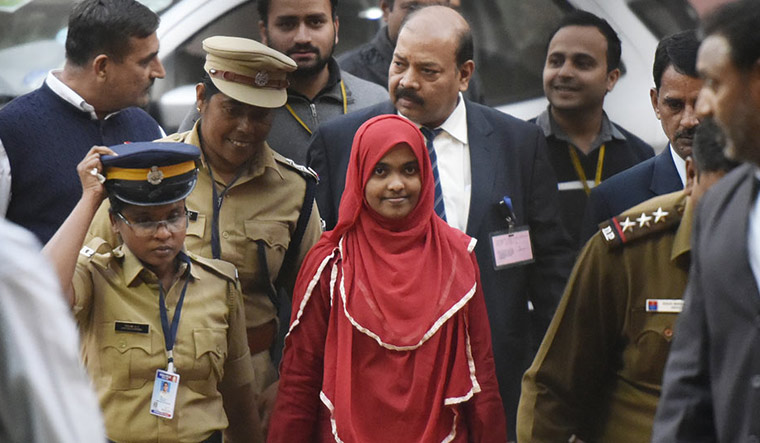In a significant development, a Supreme Court bench headed by Chief Justice Dipak Misra asked the National Investigation Agency (NIA) to continue their probe without interfering in the marriage of Hadiya in the infamous Kerala 'love-jihad' case.
Ridiculing the NIA's invasion into Hadiya's personal decisions, the bench noted that "whether this marriage is a disguise (to commit crime) is a separate issue". Justice Dipak Misra reiterated that no investigation can be allowed on the status of marriage. "How can the HC annul a marriage between two consenting adults under Article 226 of Constitution of India," he asked referring to an earlier order by the Kerala High Court. "Let's go to the extreme that the marriage is a disguise to crime. Even then you can prosecute the offenders but not the marital status," the CJI emphasised.
Earlier the day, Maninder Singh, the lawyer appearing for the NIA, submitted to the Supreme Court that the probe is almost complete in the case.
Meanwhile, Hadiya's father on Wednesday claimed before the Supreme Court that his efforts prevented his daughter from being transported to "extremist-controlled territories" of Syria to be used as a "sex slave or a human bomb". In a fresh affidavit, K.M. Asokan said his daughter was a "vulnerable adult" and she "abjectly surrendered herself to complete strangers who adopted her into their fold, offering her shelter and protection and further imparted religious indoctrination in an isolated environment".
He was responding to an affidavit filed by his daughter Hadiya. She had earlier told the apex court that she had willingly converted to Islam and wanted to remain a Muslim.
Earlier, during one of the hearings on February 22, the apex court had questioned whether the high court could nullify a marriage between "vulnerable adults" after the father of the 25-year-old woman had justified the order.
(With inputs from PTI)

